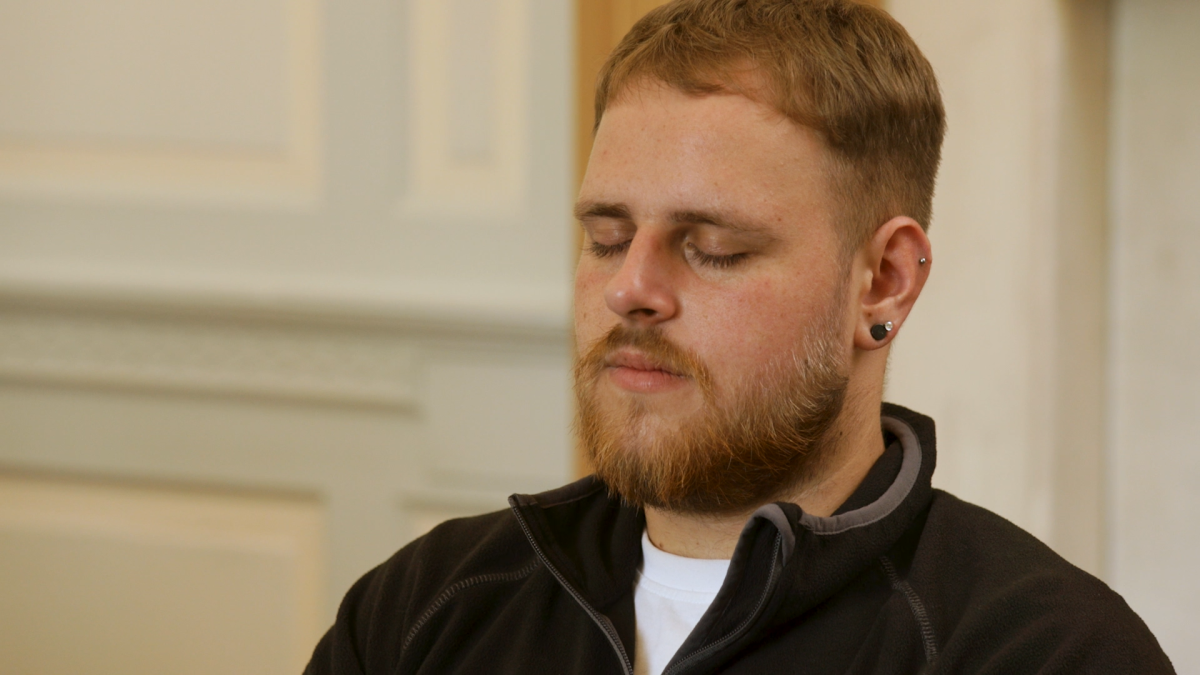Table of Contents
If you are searching for advice for a friend or family member in crisis, please call the emergency services. The information on this page is not intended as a substitute for medical intervention.
In the event of an opioid overdose, knowing how to respond quickly and effectively is crucial and can be life-saving. From recognising the signs of overdose to administering life-saving naloxone, it is important to be prepared and not let confusion or panic dictate your actions
Understanding these procedures can significantly enhance the affected individual’s chances of survival and recovery. The following sections will detail the necessary actions to take during an opioid overdose.
What are Opioids?
Opioids, like heroin, morphine, fentanyl and tramadol, are frequently prescribed for pain management. However, when misused, for an extended period, or without medical supervision, they can result in opioid dependence and various health complications.1
Opioids also referred to as opiates,2 function by interacting with opioid receptors in the brain and body to block pain signal transmission. An opioid overdose can occur when an individual is vulnerable to accidental overdose or when a prescription opioid is deliberately misused.3
Essential Steps for Managing an Opioid Overdose
Opioid overdoses are medical emergencies that require immediate and effective intervention. Understanding the appropriate actions can save lives. Below are critical steps to follow in the event of an opioid overdose.
1. Recognising Signs of an Opioid Overdose
Spotting the signs of an opioid overdose promptly can be life-saving, so it’s essential to know what to look out for. According to the World Health Organisation (WHO), there are three common signs and symptoms of an opioid overdose1
- Breathing difficulties
- Pinpoint pupils
- Unconsciousness
An individual experiencing an opioid overdose may be unconscious or extremely drowsy. Their breathing may become slow, irregular or even stop. It’s also common for their heartbeat to slow or stop.
You may also see signs of confusion. In some cases, an individual’s face may appear pale and their fingernails or lips could turn blue or purple. They might start vomiting or making gurgling noises.3,4
Recognising these signs isn’t just critical; it’s potentially life-saving.
2. Call Emergency Services Immediately
Upon recognising the symptoms of an overdose, the next vital step is to call 999 immediately. Provide the operator with detailed information about the situation, including the individual’s condition and any substances they may have taken. This allows first responders to prepare appropriately.
While waiting for paramedics to arrive, stay on the line with the operator for further instructions and try to keep the individual awake and breathing. Avoid trying to make them vomit as it won’t help and can be dangerous. It’s also important to collect any drug paraphernalia or substances for the emergency services to identify what was taken.
Early contact with emergency services is critical, as professional medical intervention is often required to stabilise the individual. Remember, every second counts and timely medical assistance can be the difference between life and death.

3. Administer Naloxone if Available
Approved by the Food and Drug Administration (FDA), naloxone is a life-saving emergency medication that reverses the effects of an opioid overdose when administered promptly.5
While it is available as an over-the-counter medication in the US, under UK drug regulations, naloxone is only accessible with a prescription. However, drug treatment services are authorised to supply naloxone without requiring a prescription. In emergencies, anyone can use it to potentially save a life.6
Naloxone can be given via injection or nasal spray and is designed to be used by bystanders without medical training. If available, administer it immediately, following the instructions provided with the medication. Naloxone can reverse opioid overdose by quickly removing opioids from specific sites in the brain, helping to restore regular breathing within 2–5 minutes.4,7
It is important to note that naloxone’s effects are temporary and the individual will still require professional medical treatment. Having naloxone on hand and knowing how to use it can significantly improve the chances of survival.4
4. Provide Basic Life Support
While waiting for emergency services, providing basic life support can be crucial. If the individual is not breathing or has a weak pulse, start CPR immediately. Ensure their airway is clear and administer rescue breaths if you are trained to do so.CPR can maintain vital blood flow to the brain and other organs until professional help arrives.
If an individual is breathing but remains unresponsive, place them in the recovery position (lying on their side). This position helps keep the airway clear and reduces the risk of choking. Continuously monitor their condition and be prepared to adjust your actions as necessary.8
5. Stay with the Individual Until Help Arrives
Never leave an individual alone while waiting for emergency services. Continuous monitoring is essential as their condition can deteriorate rapidly. Stay calm, offer reassurance and keep them as comfortable as possible.
If you have administered naloxone, be aware that its effects are temporary and can wear off within 30 to 90 minutes, potentially causing the overdose symptoms to return.4
Ensure that you provide accurate information to the emergency services when they arrive, including any actions taken and the substances involved. Your presence and support are vital in ensuring the best possible outcome.
6. Follow Up with Medical and Psychological Support
After the immediate crisis has been managed, it is essential to follow up with comprehensive medical and psychological support. A drug overdose is a clear indicator of a severe substance use disorder that requires professional treatment programmes.
Engage with addiction specialists who can provide a thorough assessment and recommend an appropriate treatment plan. This often includes detoxification, rehabilitation, counselling and ongoing support to address the underlying issues contributing to substance use.
Long-term recovery is a multifaceted process and professional guidance is crucial in achieving and maintaining sobriety. Commitment to continued care and support can help prevent future overdoses and promote a healthier, drug-free life.2

Download Our Brochure
Steps for Preventing Opioid Overdose
To protect yourself and others from an opioid overdose, it’s important to understand and utilise relevant preventive measures. Please find examples of these below7:
- Learn more about the risk factors associated with opioid-based pain medications and signs of opioid overdose
- Recognise if you or a loved one is particularly vulnerable to accidental overdose
- Avoid accidental overdose by strictly adhering to prescribed medication instructions
- Do not mix pain medicines with alcohol. Combining alcohol with prescription opioids raises the likelihood of overdose
- If available, obtain naloxone and learn how to use it
- Reduce stigma around recovery and treatment of substance use disorders. There’s no shame in reaching out for help, for example by contacting local support services or registered addiction clinics, if you’re struggling with substance use
Remember, in an opioid overdose, your quick reaction can save a life. Call 999, keep the affected individual awake and start CPR if needed. Don’t forget to seek follow-up care to ensure their recovery.

Getting Help for Opioid Addiction at Castle Craig
Getting Help for Opioid Dependence
Opioid dependence is a serious and life-threatening condition that necessitates immediate and comprehensive intervention. At Castle Craig, we understand the challenges associated with opioid addiction and are dedicated to providing the highest standard of care for those affected.
The Importance of Seeking Help
Recognising the need for help is the first and most important step towards recovery. Opioid dependence not only endangers physical health but also impacts mental well-being, relationships and overall quality of life. The nature of opioid addiction often makes self-recovery challenging due to the severe withdrawal symptoms and intense cravings associated with these substances.
Professional treatment offers a structured and supportive environment where individuals can safely navigate the complexities of detoxification and rehabilitation.2
Comprehensive Treatment Approach
Castle Craig offers a holistic treatment approach which is designed to address all aspects of opioid dependence. Our programmes are tailored to meet the unique needs of each patient, ensuring that both the physical and psychological components of addiction are effectively treated. Key elements of our treatment programme include:
- Medical Detoxification: Our medically supervised detoxification process ensures that patients withdraw from opioids safely and as comfortably as possible at our on-site detox unit. This phase is vital in stabilising the patient and preparing them for the next steps in their recovery
- Therapeutic Interventions: We provide a range of evidence-based therapeutic interventions, including cognitive behavioural therapy (CBT), individual and group counselling and family therapy. These therapies aim to identify the underlying causes of addiction, establish effective coping mechanisms and encourage lasting behavioural transformations
- Psychiatric Support: Opioid dependence often coexists with other mental health disorders. Our integrated approach ensures that patients receive comprehensive psychiatric care, addressing co-occurring conditions such as depression, anxiety and trauma-related disorders
- Holistic Therapies: In addition to conventional therapies, Castle Craig offers a variety of holistic treatments, such as mindfulness meditation, yoga and art therapy. These therapies support emotional healing and enhance overall well-being
- Aftercare Planning: Long-term recovery requires ongoing support. We provide detailed aftercare plans including access to outpatient services, support groups and continued counselling. Our goal is to equip patients with the tools and resources needed to maintain sobriety and lead fulfilling lives post-treatment
Seeking help for opioid addiction is a bold and courageous step. At Castle Craig, we are here to support you throughout your treatment, offering the guidance, care and expertise needed to overcome and treat your opioid use disorder, helping you achieve lasting recovery. If you or someone you care about is struggling with opioid dependence, we encourage you to reach out to us today for a free, confidential assessment.
-
References
- World Health Organization (WHO). Opioid overdose. https://www.who.int/news-room/fact-sheets/detail/opioid-overdose [Accessed June 2024].
- Yale Medicine. Opioid Use Disorder. https://www.yalemedicine.org/conditions/opioid-use-disorder [Accessed June 2024].
- National Institute on Drug Misuse. Prescription Opioids DrugFacts. https://nida.nih.gov/publications/drugfacts/prescription-opioids [Accessed June 2024].
- National Institute on Drug Misuse. Naloxone DrugFacts. https://nida.nih.gov/publications/drugfacts/naloxone [Accessed June 2024].
- U.S. Food and Drug Administration (FDA). Information about Naloxone and Nalmefene. https://www.fda.gov/drugs/postmarket-drug-safety-information-patients-and-providers/information-about-naloxone-and-nalmefene [Accessed June 2024].
- GOV.UK. Expanding access to naloxone. https://www.gov.uk/government/consultations/consultation-on-expanding-access-to-naloxone/consultation-on-expanding-access-to-naloxone [Accessed 2024].
- Kansas Board of Pharmacy. Opioid Overdose is Preventable. https://pharmacy.ks.gov/k-tracs/consumers/prevent-overdose/prevent-opioid-overdose [Accessed June 2024].
- National Health Service (NHS). First Aid: CPR and Recovery Position. https://www.nhs.uk/conditions/first-aid/cpr/ [Accessed June 2024].

